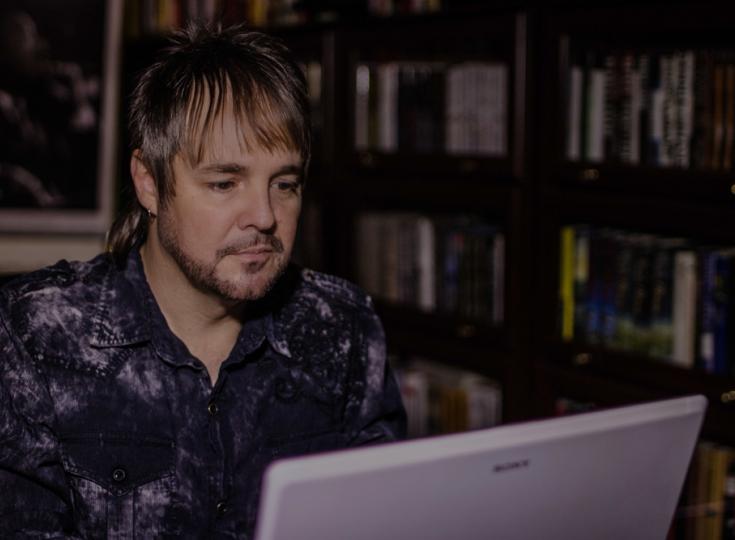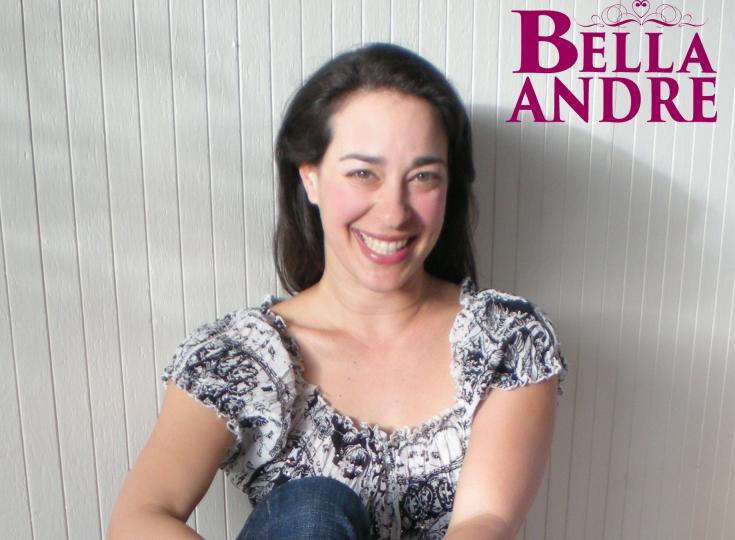Beth Troy - When Life Doesn't Go According To Plan

Beth Troy became a Christian during the first semester of her freshman year in collage and, as an avid reader, was eager to discover Christian fiction. She headed to the bookstore, hoping to find a story about a girl like herself, but only discovered a sea of bonnets and horses.This experience inspired her to later write her debut novel, Lu. As our Author of the Day, Troy tells us about Lu's character, why she picked a small town setting for the book and much more.
Please give us a short introduction to what Lu is about.
Lu is the story of any girl from anyplace whose life hasn’t worked out according to plan. In Lu’s case this looks like a cheating boyfriend and an aborted career, but swap the details, and it’s a story we’ve all lived. Everything about her Plan A was to leave behind her family and her hometown, but when that fails, her only choice is to return. She doesn’t really know her family anymore. Any she doesn’t really know herself. This leads to a lot of questions … and a fair share of funny, awkward moments. I guarantee you will be laughing before the end of Chapter 1.
What inspired you to write Lu?
I became a Christian the first semester of my freshman year in college and took a field trip to the bookstore as soon as possible. I was an avid reader growing up and now that I believed in God, the genre of “inspirational fiction” was open to me (or more like I was open to it). I remember the anticipation of that first trip, hoping for a story to make sense of how to be this “new” me in my same old world. But what I saw were a lot of book covers with portraits of women in bonnets and high-necked, lacy collars. There’s nothing wrong with that – I enjoy reading historical fiction – but I was looking for a story about a girl like me. I walked away without buying anything, but the inspiration for writing a different sort of story – one that would require a different title and cover – happened there.
Tell us more about Lu Sokolowski's character. What makes her tick?
She’s smart, and she wants to achieve. This is why she’s laid so low at the start of the book because none of her plans – relationship, job, location – have worked out. It’s hard for her to admit this to herself, let alone others, so she puts up walls as a defense mechanism. But as the chapters go on, and she reacquaints herself with her family and starts to rebuild her life, Lu is honest enough to acknowledge her perceptions were off. Her humility invites you in. Also, she says and does the things the rest of us want to say and do but don’t. She’s fearless in that way, and it makes for a fun ride to sidecar on.
Why did you pick a small town as the backdrop of your story?
It’s the best way to mess with Lu, who’d rather live her life in independent anonymity. You can’t do that in a small town. I live in a small town and expect I’ll run into people I know every time I leave the house. This familiarity puts Lu on edge, but also grows her up.
What do you hope your readers will take away from this book?
That God is real and deals with real people. No character in this book falls in the two-dimensional “good” or “bad” buckets, and their beliefs are not of the hook-line-sinker mentality. I think the stereotype is that Christians fall into one category and check their brains at the doors of their churches on Sunday morning. Lu counters that assumption.
Besides writing, what other secret skills do you have?
I love to dance. To cut the edge off writing Lu, I became a Zumba instructor, and at one point I was teaching three classes a week, but then I pulled my right hip with all those swivels and shakes. I cut out the Zumba, but the hip still took awhile to heal because if you play anything with a beat, I’m gonna shake my hips. It’s just what I do.
Your supporting characters, such as Lu's grandmas, are well fleshed out - why did you find this important to do?
Lu likes to think she’s an island. She doesn’t want to rely on anyone, and she doesn’t want anyone to rely on her. Much of her character arc is pulling her out of this loner mentality, and to do that, I had to create compelling characters worthy of her taking that risk. A few chapters in, you’re reading as much to find out what happens with those supporting characters as you are with Lu.
Your readers report that this book was hard to put down. What are some things you do to keep your readers hooked throughout the story?
Tension – always tension. Nothing is ever a done deal with Lu, and even when you think she’s settling in, there’s always the question. The doubt. Life in her small town of Dunlap’s Creek is going well, but will Lu stay? She’s obviously attracted to Jackson, but will she ever do anything about it? Lu seems open to faith, but will she ever believe?
In which way is Lu different from other books in the genre?
I read three broad categories of Christian lit: fiction, memoirs/blogs, and apologetics. I like to think Lu combines the essential elements of the three: a good read about an authentic girl who’s really thinking through the relevance and reasonableness of faith.
Do you consider yourself a disciplined writer? Do you have a schedule that you stick to, or is it more in the moment?
When I aim to do something, I like to get it done sooner rather than later, but book writing has natural starts and stops for me. Sometimes I’ll start a chapter that will naturally flow into several, and when this happens, I steal as much time as I can (vs. wasting it) – in the early mornings before my kids are awake and in the smidgens of time during the day. But other times when I’m noodling over where a character is headed or what should happen next, I might not write for several days or the writing will be half-hearted. It’s not procrastination so much as inertia.
Do you work to an outline or plot or do you prefer to just see where an idea takes you?
I had a question that established my broad plot arc from the beginning: How does a woman like you and me come to believe in God? And I knew the story would start as it began: with Lu heading home. But in between these points? No clue! At first, the unknown was uncomfortable because it felt like a problem I needed to solve – a problem I questioned whether I could solve – but eventually I treated it more like a surprise. What will this character say/do next? Who knows, but let’s find out.
In this book you’re dealing with so many difficult themes – as a writer, do you feel a sense of responsibility? If so, how do you deal with this?
The story trumps everything else. The characters, plot, arguments, dialogue, sermons, biblical passages – all these elements serve the story of Lu finding her way back to her family, her faith, and herself. If any of these elements broke from the natural flow of the story or created a gap in the story or turned the story into another story, they either needed to be modified or cut. If you have too many goals as a writer, the seamlessness of the work – the ease of reading – suffers. I had one goal – to tell one good story – and I kept to it as best I could by rooting these difficult themes within the context of Lu’s story. It’s the hardest work I’ve ever done, but the feedback I’m receiving from readers is that the read is “effortless,” regardless of these difficult themes.
What are you working on right now?
Book 2, which readers say they wanted yesterday, but I’m 15 chapters in and not so sure they’d say that if they knew what Lu was up to – ha! And there you have it! I cliffhanger preview J
Where can our readers discover more of your work or interact with you?
My web site, www.bethtroy.com, and also on Facebook and Instagram. And please – interact! Writing is lonely work, but I’m a natural extrovert always looking for a good chat.








